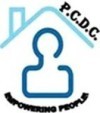Focus on Fatherhood

...is a multi-county comprehensive responsible fatherhood initiative offered by the Randolph County Caring Community Partnership along with the Mid-Missouri Fatherhood Coalition. The program provides parent education and peer support group sessions through two nationally known curriculums, Quenching the Father Thirst designed by the National Center for Fathering, and theFatherhood Development Curriculum, developed by Dr. Jeffrey Johnson, President and CEO of the National Partnership for Community Leadership (NPCL).Curriculum are presented in community and faith-based settings.
The Quenching the Father Thirst curriculum is designed for fathers who have an interest in enriching their fathering skills and benefit from learning new skills through small group interaction to exchange ideas and experiences. This research and theory-based curriculum is a blueprint for guided programming interventions with fathers addresses the systemic barriers to fathering and provides training in specific father skills. The curriculum is designed to be useful for fathers in any social service based setting (courts, prisons, employment agencies, hospitals, drug rehabilitation centers, etc.) and faith-based setting as well as in any fathering situation (teen, single, married, divorced, non-custodial, step, father-figures).

The Fatherhood Development Curriculum has the distinction of being the only fatherhood curriculum recommended and used in four national demonstration projects targeting fathers from diverse backgrounds.
When, combined with support services such as employment, education, health, and housing, the Fatherhood Development Curriculum provides the foundation for an effective program working with men and fathers. The Fatherhood Development Curriculum is based on real experiences and challenges of fathers in fragile family settings. The curriculum offers practitioners a field-tested guide to working with fathers in providing support, information and motivation in areas of life skills, parenthood, relationships (including marriage and team parenting), and health. The “Focus on Fatherhood” program implements the Fatherhood Development Curriculum for fathers that have been mandated to attend a parenting program as a condition of their court order.
The “Focus on Fatherhood” program targets high-risk fathers that are either young, facing poverty, recent or long-term lack of employment, a familial history with legal issues or substance abuse, or have limited experience in interacting with their children. Although our program will target fathers between the ages of 17-35 years of age, we will offer services to fathers over the age of 35 years of age as well. The fathers are engaged in multiple components which include the following:
- “Connecting With Your Kids” Workshop
- Parent Education and Peer Support Group Sessions
- Care Coordination
- Family Engagement
- Skills Development (Life skills, Employment skills)
- Men’s Health (Mobile App)
- Motherhood Development
- Healthy Relationship, Healthy Families
Fathers are engaged in the program a duration of 8 weeks to 18 months depending upon the individual outcomes they would like to achieve.

The Facts
An estimated 25 million children (40%) live in homes without their fathers.
Did You Know? Children from fatherless homes are more likely to:
- Become involved in drug and alcohol abuse
- Boys are more likely to become involved in crime
- Girls are more likely to become pregnant as teens

This Must Change!!
Did You Know? Children with involved fathers are:
- More likely to mature into compassionate adults
- More likely to have higher self-esteem and confidence
- More likely to have less emotional and behavioral difficulties in adolescence

Together We Can Make A Difference!!
A substantial body of research documents that fathers bring many benefits to the lives of their children. This research highlights the importance of resident and nonresident fathers to their children’s well-being. Many scientific studies link positive fatherhood involvement with:
- Lowered levels of lying, disruptive behavior, and depression;
- Fewer externalizing and internalizing behaviors and less delinquency;
- Higher self-esteem; and
- Less sexual risk (later sexual debut, fewer partners, less likely to be diagnosed with a sexually transmitted disease).






